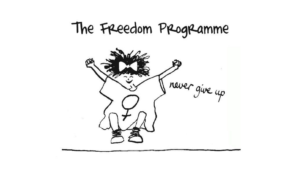Under the new Domestic Abuse Bill, people will be able to carry out background checks to see if their partners pose a threat to them. Clare’s Law will allow everyone to look into the history of their partners or those of family and friends.
The Domestic Violence Disclosure Scheme (DVDS) is often called ‘Clare’s Law’ after the landmark case that led to it. Clare’s Law first came into being after the murder of mum-of-one from Salford Clare Wood in 2009. Clare’s Law gives any member of the public the right to ask the police if their partner may pose a risk to them. Under Clare’s Law, a member of the public can also make enquiries into the partner of a close friend or family member.
Previously police have had discretion on whether to provide information on domestic abuse suspects since Clare’s Law was first passed in 2014.
But now everyone will get the legal right to check out their partners or those of relatives and close friends.
After a campaign led by her dad, Michael Brown, the Domestic Violence Disclosure Scheme was trialled in Manchester and rolled out across the country, but this week’s announcement enshrines it in law.
The draft Domestic Abuse Bill will now introduce the first ever government definition of domestic abuse so that it includes economic abuse, as well as controlling and manipulative non-physical abuse.
There will be an additional £500,000 funding specifically for male victims,with the system being overseen by the new role of Domestic Abuse Commissioner.
One woman from Wythenshawe who has used the service said it was easy to access:
“I contacted the Police on 101 as I had concerns for a member of my family. I informed the Police I wanted to make an application under Claire’s Law. There followed a lot of questions which took approximately 45 minutes to answer. Once the questions had been answered the officer informed me the application would be looked into. I received a phone call from another police officer the following day. They informed me they were satisfied that the family member should be informed of certain information they held. This information would only be given to the relative I had concerns for. The Police made arrangements to meet with my relative to discuss the information they had. She was then able to make her own decision as to whether to continue with that relationship. I found the system helpful and my relative made the right decision based on information she was given.”
How do I make an application?
It is important to remember that anyone can make an application to the police about an individual who is in an intimate relationship with another person and there is a concern that the individual, may present a risk of harm to their partner.
Contacting the police
There are many different ways you can contact the police. You can:
- Visit a police station
- Phone 101, the non-emergency number for the police
- Speak to a member of the police on the street
If you believe there is an immediate risk of harm to someone,
or it is an emergency, you should always call 999.











